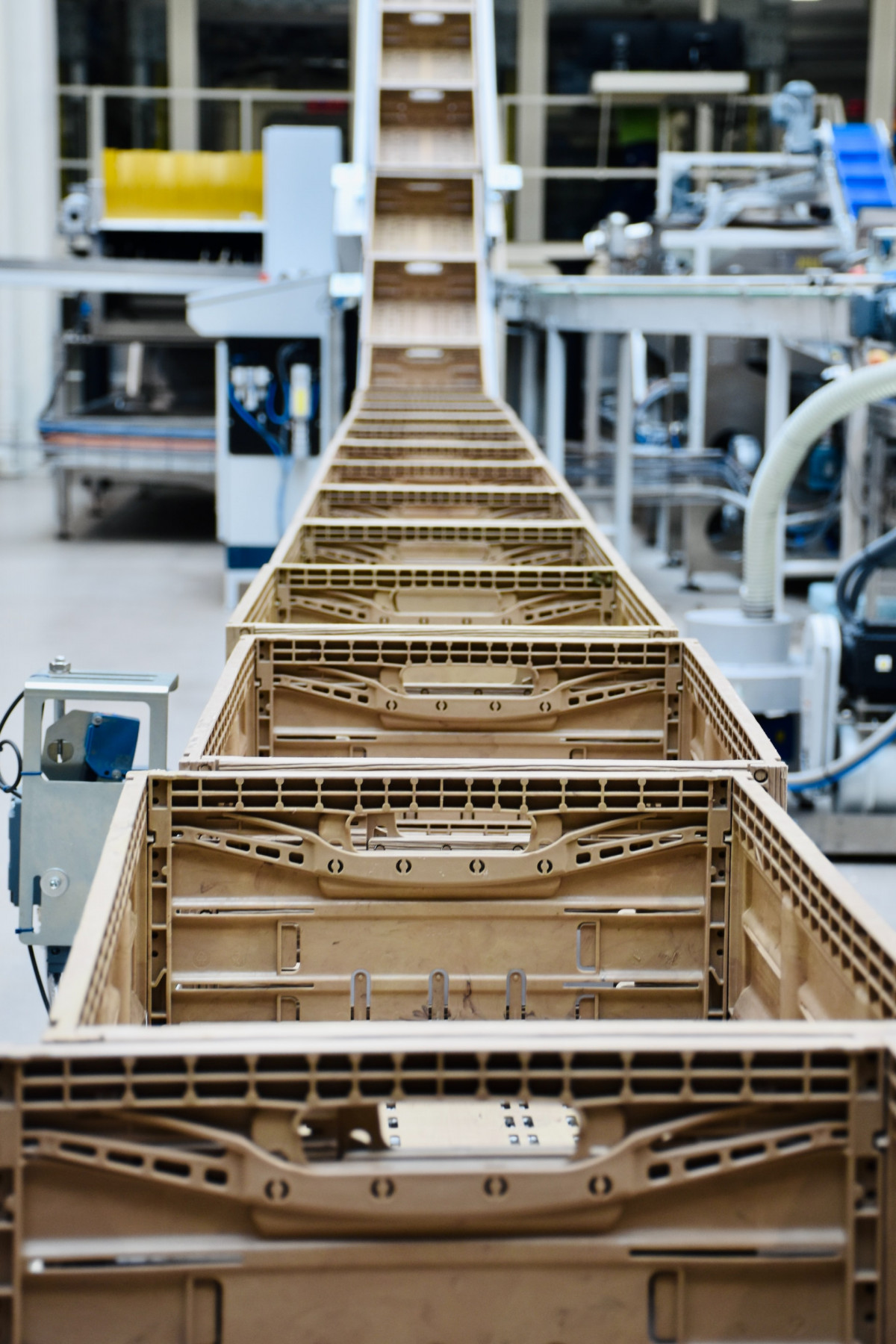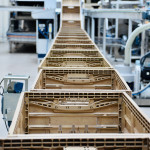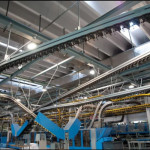
Most warehouses resort to using overhead material handling conveyors to save space. However, convenience requires extra safety precautions, especially when people or machinery will still pass under the overhead conveyors. Proper clearance should be set among other safety concerns.
These tips will help set overhead conveyor clearances safely and effectively:
1. A minimum of 7 feet of clearance is required for people walking under conveyors. The measurement should start from the lowest hanging part of the conveyor system. To be safe, do allow more than 7 feet as a buffer. Consider installing underside bed covers for any clearance less than 10 feet so people passing under will be protected from the moving parts of the conveyor.
2. There should be at least 9 feet of clearance measured from the lowest hanging part of the overhead conveyor systems for forklifts. This measurement is based on average-sized forklifts that move underneath the overhead conveyor system with their masts lowered. To be safe, determine the height of all forklifts used in the warehouse and other moving machinery that may travel underneath the overhead system to help determine the clearance required.
3. To prevent forklift and conveyor accidents, it is best to install guardrails and posts. Avoid the risk of having to halt productivity once a forklift crashes into a conveyor. Consider these safety features to save your business a lot of time and money.
4. Conveyor safety nets are another important precaution to take into consideration as this will provide protection and avoid injury that can be caused by falling items. Do not ignore the possibility that products or parts will fall off from the overhead conveyors. Without precaution, it can cause injury to people passing underneath.
5. One way to avoid accidents is to prevent people from walking underneath when the overhead conveyor is moving. Most warehouses may deem this impossible but if restricting passage can be done, it will increase warehouse safety.
6. Using signage is another way to increase safety under and around overhead conveyor systems. It will be helpful to place warning signs to let workers know of any low-hanging equipment or whenever a conveyor is at work.
7. Overhead clearance sensors can alert forklift drivers with alarms and flashing lights so they will know if there are any clearance hazards. In the case that a forklift carrying a load is too high to clear a ceiling, shelf, or overhead conveyor system, the alarm will go off and lights will flash as a warning so the forklift driver will have time to stop to avoid a collision.
Safe Installation and Proper Clearance
Overhead material handling conveyors are relatively safe as long as they are installed with proper clearance. It is best to entrust the installation to a reliable material handling supplier so you won't risk the safety of your employees.
Carolina Material Handling can answer any of your questions or concerns regarding overhead conveyor system clearance. They have experts that can help you from installation to inspection of existing conveyor system clearance. Visit their website at cmh-inc.com.
































